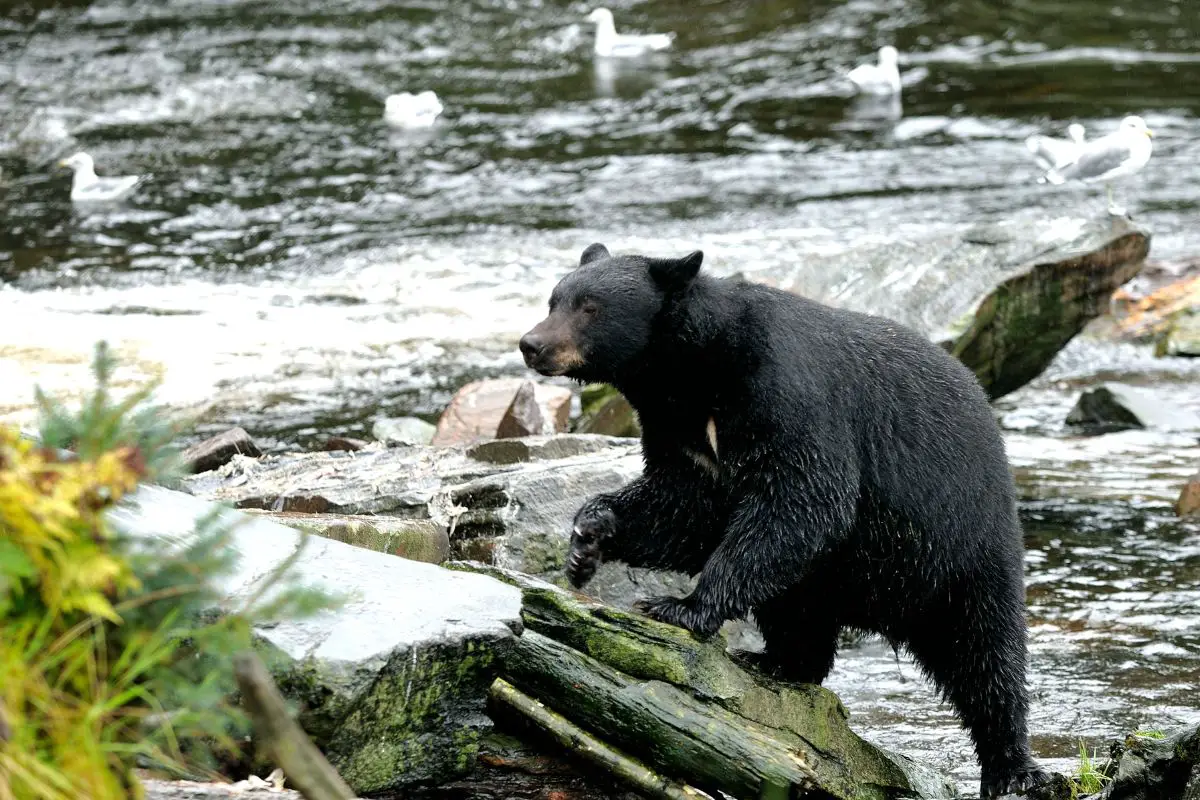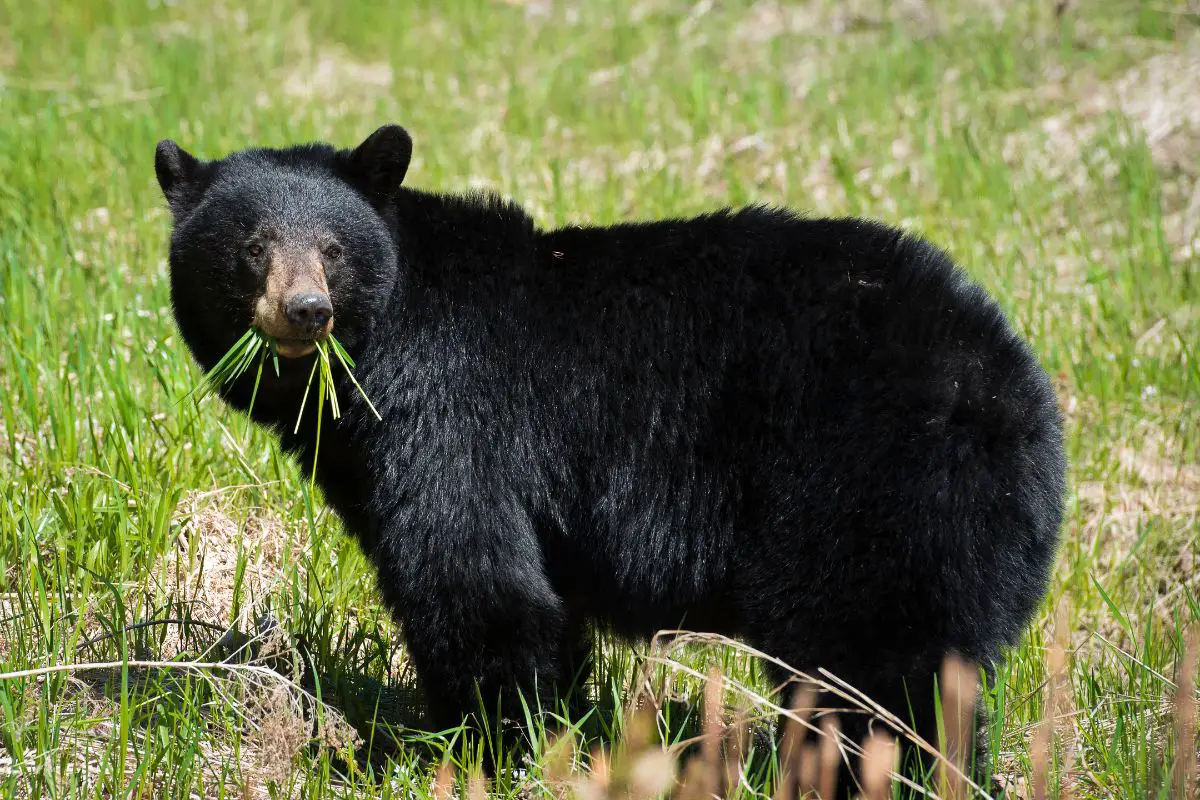New Hampshire is home to lots of interesting wildlife, whether it’s the wide range of birds and fish that the state has, or interesting mammals like deer, beavers, and chipmunks.
In fact, mountain and forest areas of New Hampshire have more dangerous animals, like wolves and coyotes.
However, you might be wondering whether New Hampshire is a hot spot for bears.
The short answer is yes, though only the black bear variety are present. It’s estimated that there could be almost 5000 of these creatures across New Hampshire, resulting in about 0.5 bears for every square mile of land.
But what else is there to learn about New Hampshire’s only type of bear?
I’ve got the answers! In my fascinating guide below, I’m going to tell you all you need to know about the presence of bears in New Hampshire.
I’ll tell you about their appearances and habitat, as well as what you need to do if you encounter one, among other things. Read on!

What Types Of Bear Does New Hampshire Have?
As I said in the intro, New Hampshire has only one type of bear present in the entire state, and that’s the black bear.
Known scientifically as “Ursus americanus”, the black bear is found in other locations across the United States, such as Florida, Montana, Idaho, and the Sierras, to name a few.
When it comes to New Hampshire, the black bear can be found in ten of its counties.
How Many Black Bears Are In New Hampshire?
It’s estimated that there are anywhere between 4800 and 5000 black bears across the New Hampshire state.
This doesn’t mean that they’re going to be in every spot across the place, but this number does suggest an average of 0.5 bears for every square mile of New Hampshire.
What Does A Black Bear Look Like?
The black bear is a large animal, yet has a small head. They can have various color phases, and ones in New Hampshire and other northeastern locations in the United States will be entirely black, except for a brown muzzle.
As for weight, this differs based on the sex of the animal. A male black bear will often weigh anywhere between 200 and 250 pounds, while a female will weigh closer to 125-150.
A black bear has powerful limbs, which makes them more dangerous than they already are. Each of their feet is a well-developed claw, and they have five toes. Interestingly, they move about on their soles, much like humans do.
Where Is A Black Bear’s Typical Habitat?
When it comes to where black bears will live, you’ll often find them in the more forested spots. These are places where there will be thick underlying layers of vegetation, which will help to feed them.
Within those forests, a black bear will make use of any wetlands or riparian zones. For those who don’t know, a riparian zone is the interface between land and a stream/river.
Ideally, a black bear’s habitat will have very little disturbance from humans, which is better for both the bears and the humans.
If their habitat does have a higher human presence, the bears are more likely to come at night, when things are more private.
As for how far they go, though, will depend on the sex of the adult bear. A male black bear might range as far as 120 square miles, covering a lot of ground, but the same cannot be said for the female black bears – they only range around 10 square miles.
What Do Black Bears Eat?

A black bear’s habitat should feature a diverse range of food for them to eat from over the year, and New Hampshire is no exception.
Their eating habits will largely depend on what is available during the season, with the types of food shifting as they go through the year.
In spring, black bears will feed on flowers and leaves. These are easy to digest and provide a high source of protein. Examples of this food include grasses, clovers, catkins, and dandelions.
On the other hand, they also feed on young animals, such as moose calves.
When it comes to summer, their diet shifts, because soft fruits and berries will have grown. On top of that, they’ll eat insects such as ants and bumblebees, which are good sources of protein.
As for the fruits and berries, black bears are known to snack on blueberries, strawberries, and raspberries, to name a few.
Come the fall, a bear tries to eat lots of fat, so that it will see them through their winter hibernation. As a result, they’ll eat wounded animals, grasses, roots, and even fish.
Naturally, their winter diet is non-existent, since they hide in their dens and hibernate.
Are Black Bears Dangerous?
Black bears are dangerous and are perfectly capable of killing you, so it’s important to stay far from them at all times. Every wild animal should be considered unpredictable and kept at a distance.
Thankfully, it can be quite easy to keep away from black bears, because they will often retreat before you do. If a bear hears you coming, they’ll often retreat before you even know they were ever there in the first place.
With that being said, it’s still possible to encounter black bears in New Hampshire, so you need to follow the proper precautions covered next.
What Should You Do In A Bear Encounter?
You should always keep well away from black bears – and all bears and wild animals, for that matter. If you see a black bear, stay far away and make some noises so that it knows you’re there.
Talking or clapping can help. This way, if the bear is aware of you, then it will ideally retreat itself.
However, you might find yourself too close to a black bear. If the bear starts slapping the ground, chomping its teeth, and making huffing noises, then this is often a way to make you move further away.
Upon these signs, lock eyes with the bear and move slowly backwards away from it, speaking very calmly and smoothly.
This will make it clear to the bear that you’re not threatening it, but it will also show that you’re not afraid either.
NEVER run or turn your back on the bear, and don’t break eye contact with it either. This could show it that you’re weak, and that might make it attack you.
If you did run, a bear will always catch up. They can also climb and swim better than you.
It’s a popular myth to “play dead” in a bear attack, but this is NOT something you should do. It’s better to fight back if you find yourself in an active attack from the bear.
What If A Bear Visits Your Bird Feeder?
In New Hampshire, bears have been known to visit people’s bird feeders in their backyards. To prevent them, and keep you safe, remove bird feeders between April and December. Additionally, clean your barbecue grill.
Final Thoughts
New Hampshire is home to as many as 5000 black bears, but no other bear varieties.



